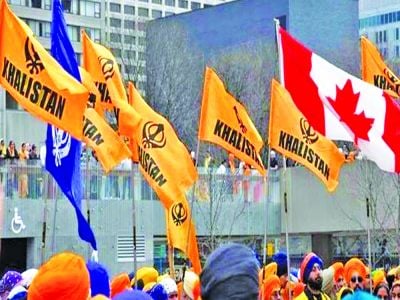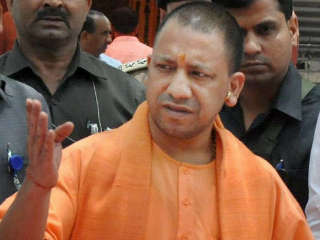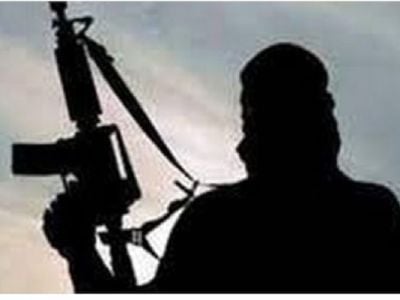By Kalyani Shankar

The ongoing massive diplomatic row has brought a sudden spotlight on the Canada-India relationship.
Differences emerged between the two countries after Canadian Prime Minister Justin Trudeau alleged Indian involvement in killing a separatist Sikh activist, Nijjar. Outraged, New Delhi vehemently denied the claim and dismissed it as “absurd and motivated.”
On June 18 this year, a pro – Khalistani leader Najjar was shot dead outside a Gurudwara in Surrey, British Columbia. India had declared him a wanted terrorist. If the relationship between India and Canada had been trending smoothly, it was because of the Geopolitical developments, economic relations, and demographic trends. It worsened after the Nijjar killing. The two countries resorted to tit-for-tat reactions against each other. The ties between the visiting Canadian Prime Minister Justin Trudeau for the G20 summit last week were visibly frosty.
New Delhi has been protesting the presence of the pro – Khalistani elements in Canada. New Delhi also frowned on the referendum for Khalistan by them. When Trudeau was on a bilateral visit in 218, there were embarrassing moments about the presence of a Khalistni activist in his delegation. The pro- Khalistani elements sent death threats to Indian diplomats in Ottawa. The request for their extradition also has yet to be addressed so far.
Why is Canada important to India? The former British colony has the highest population of Sikhs outside their home state of Punjab. About 1.4 million Indian immigrants live in Canada out of 40 million. About 770,000 people follow Sikhism. New Delhi has often complained about their activities.
After the controversy, Canada and India acted swiftly to expel senior diplomats in reciprocal moves earlier this week. On Thursday, India’s foreign ministry suspended visa services temporarily for Canadian citizens. Ottawa claims that Canadian security agencies had uncovered evidence linking the Indian government to the assassination.
As for domestic politics, the Congress and other parties supported the Indian government and criticised Trudeau’s statement. They are shocked at the allegation that the Indian government had orchestrated the killing of an Indian-origin Canadian citizen on Canadian soil and supported the South Bloc. Only Sukhbir Badal, the leader of Akali Dal, suggested that political parties should work together to stop anti-Sikh propaganda in the media.
As for the international scenario, the reaction towards India from its Western allies has been cautious. Top U.S. diplomat David Cohen claimed the shared intelligence among the Five Eyes made Justin’s allegation. Five Eyes Network is an intelligence alliance comprised of the United States, the United Kingdom, Australia, Canada, and New Zealand. The New York Times said on Sunday, “In the aftermath of the killing in June of the Sikh separatist leader Hardeep Singh Nijjar, U.S. intelligence agencies offered their Canadian counterparts context that helped Canada conclude that India had been involved. ”
Trudeau called on India to cooperate with Canadian authorities to “uncover the truth” about the killing but stated that he was not looking to escalate tensions between the two countries. The standoff will have repercussions for both India and Canada. India is Canada’s tenth most significant trading partner.
Secondly, India has a vital role in Canada’s 2022 Indo-Pacific Strategy. Thirdly, India is Canada’s tenth most significant trading partner. The two countries have been in discussions about a trade agreement for more than a decade. In 2022, the total trade value between them only reached C$13.7 billion, a small portion of Canada’s overall trade volume amounting to C$1.52 trillion.
A favourable climate for high-level negotiations for an Early Progress Trade Agreement (EPTA) existed. The October meeting for EPTA talks has now been postponed indefinitely.
Fourthly, the Canadian merchandise trade had grown from approximately $3.87 billion in 2012 to $10.18 billion in 2022. Trade will be hit for both sides. Fifthly, there could be a reduction in immigration from India to Canada. Canada has been home to many immigrants in recent years. It has tripled since 2013, overtaking Philipjonmes and China. The students’ traffic would also be affected adversely. Over 30 per cent of the students come from India to study in Canada. Further, tourist traffic will also affected. On September 21, India declared that it would temporarily stop issuing visas to Canadian citizens because of security concerns affecting their missions in Canada. New Delhi is also considering cancelling overseas citizenship to pro-Khalistanis.
India has come a long way since the 1980s and 1990s, rapidly gaining political and economic power. The United States wants to partner with India to balance China’s influence and would prefer to avoid strains developing among its allies. A former Pentagon official said that if the U.S. chose the two countries, it might favour India as Washington has been wooing India to balance China in the region.
However, any negative impact on India-Canada relations could prevent Canada from joining the Indo-Pacific network of institutions. Ottawa recognises India’s regional power and influence. Ottawa must be made to understand the sentiments of New Delhi and should not pamper pro-Khalistani elements.
(The writer is a popular columnist; views are personal)
Source: The Pioneer

 PFI formed death squads to kill Hindus after they murdered RSS leader Rudresh: NIA investigation
PFI formed death squads to kill Hindus after they murdered RSS leader Rudresh: NIA investigation Conspiracy to kill Hindu leaders: Shakil Sheikh arrested from Maharashtra by Surat Police
Conspiracy to kill Hindu leaders: Shakil Sheikh arrested from Maharashtra by Surat Police Dream of Ghazwa-E-Hind will not be realised till Qayamat: UP CM Yogi Adityanath
Dream of Ghazwa-E-Hind will not be realised till Qayamat: UP CM Yogi Adityanath NIA Intensifies Hunt for Khalistani terrorists operating from UAE, Canada, US, Australia and Pakistan
NIA Intensifies Hunt for Khalistani terrorists operating from UAE, Canada, US, Australia and Pakistan Over 50,000 infiltrators living in Kerala with fake Aadhaar cards, bogus identities: Report
Over 50,000 infiltrators living in Kerala with fake Aadhaar cards, bogus identities: Report Top LeT commander Basit Dar among 2 terrorists neutralised in an encounter in Kulgam
Top LeT commander Basit Dar among 2 terrorists neutralised in an encounter in Kulgam